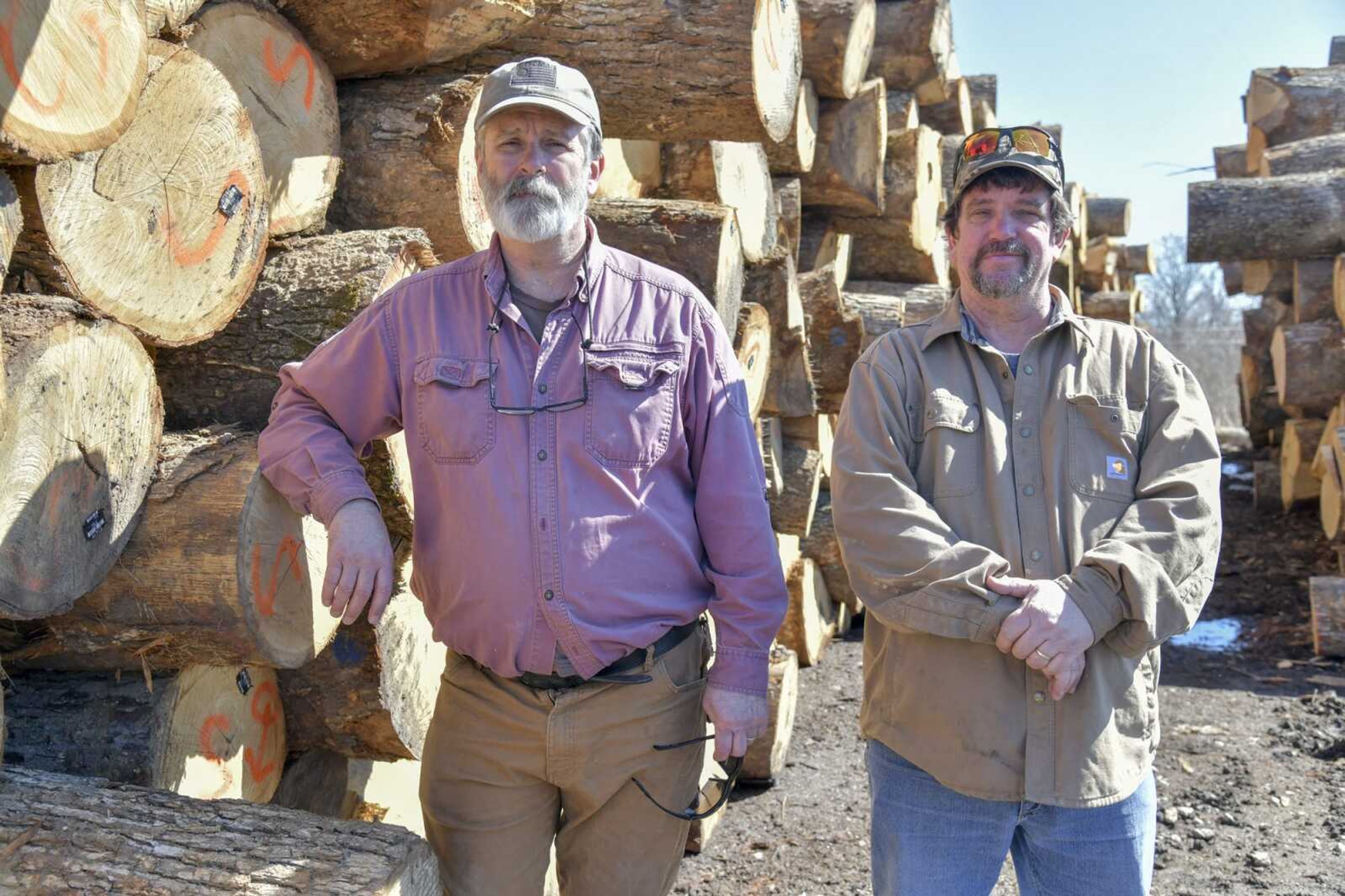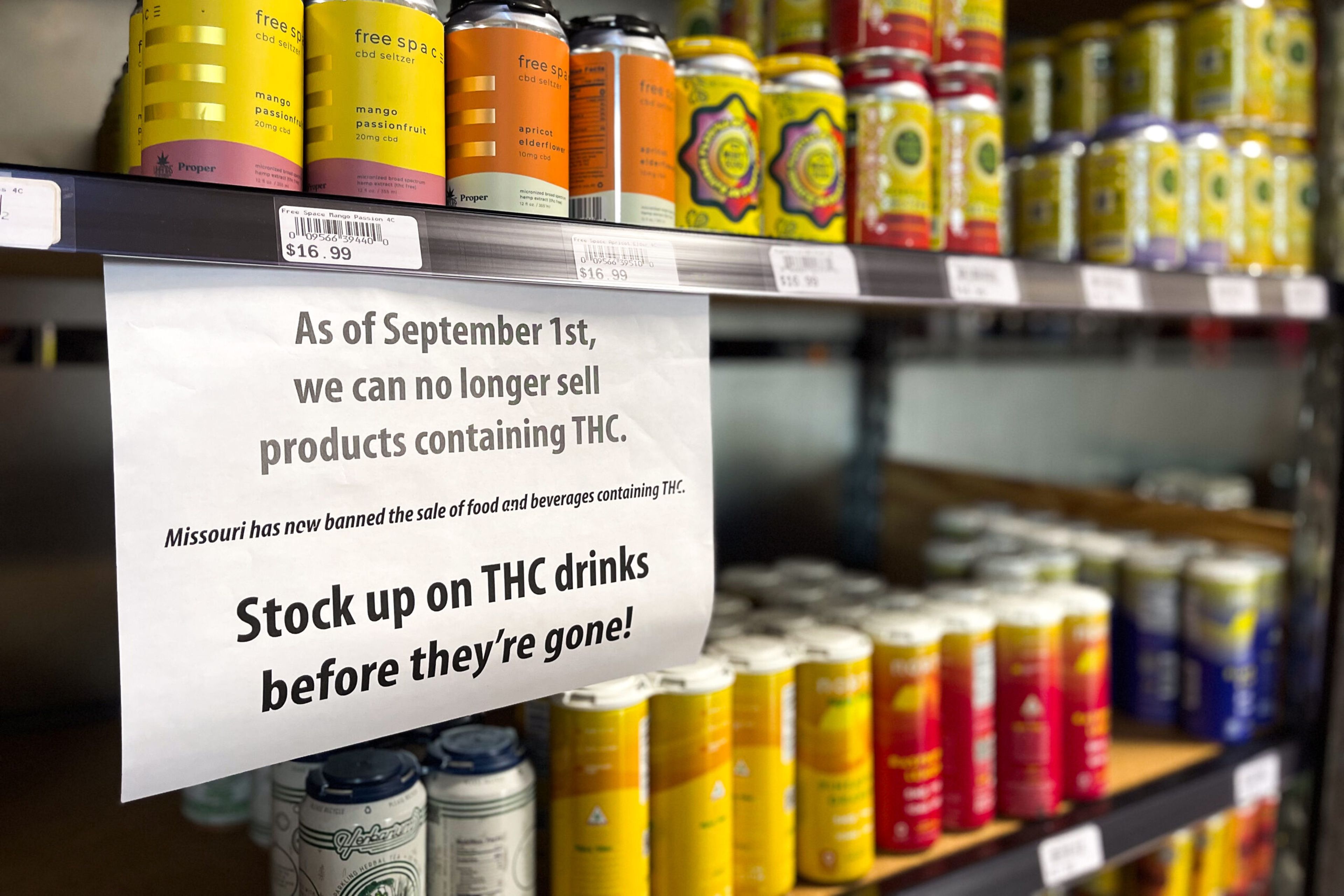Bailey family: Flavoring wine and spirits for four generations
If you've ever enjoyed a glass of Buffalo Trace bourbon, or wines from the vineyards of Robert Mondavi or Francis Ford Coppola, there's a chance it was aged in a barrel created out of American oak from within a 75-mile radius of Perryville, Missouri...
If you've ever enjoyed a glass of Buffalo Trace bourbon, or wines from the vineyards of Robert Mondavi or Francis Ford Coppola, there's a chance it was aged in a barrel created out of American oak from within a 75-mile radius of Perryville, Missouri.
One of only a dozen independent barrel stave mills in the United States, Perryville Stave Co. has been operating in the same location and by the same family for 75 years.
How the company ended up in Perryville with the Bailey family at the helm is quite a tale.
For Steve Bailey, the fourth generation to work in the business and current company president, the barrel stave business is all he's ever known.
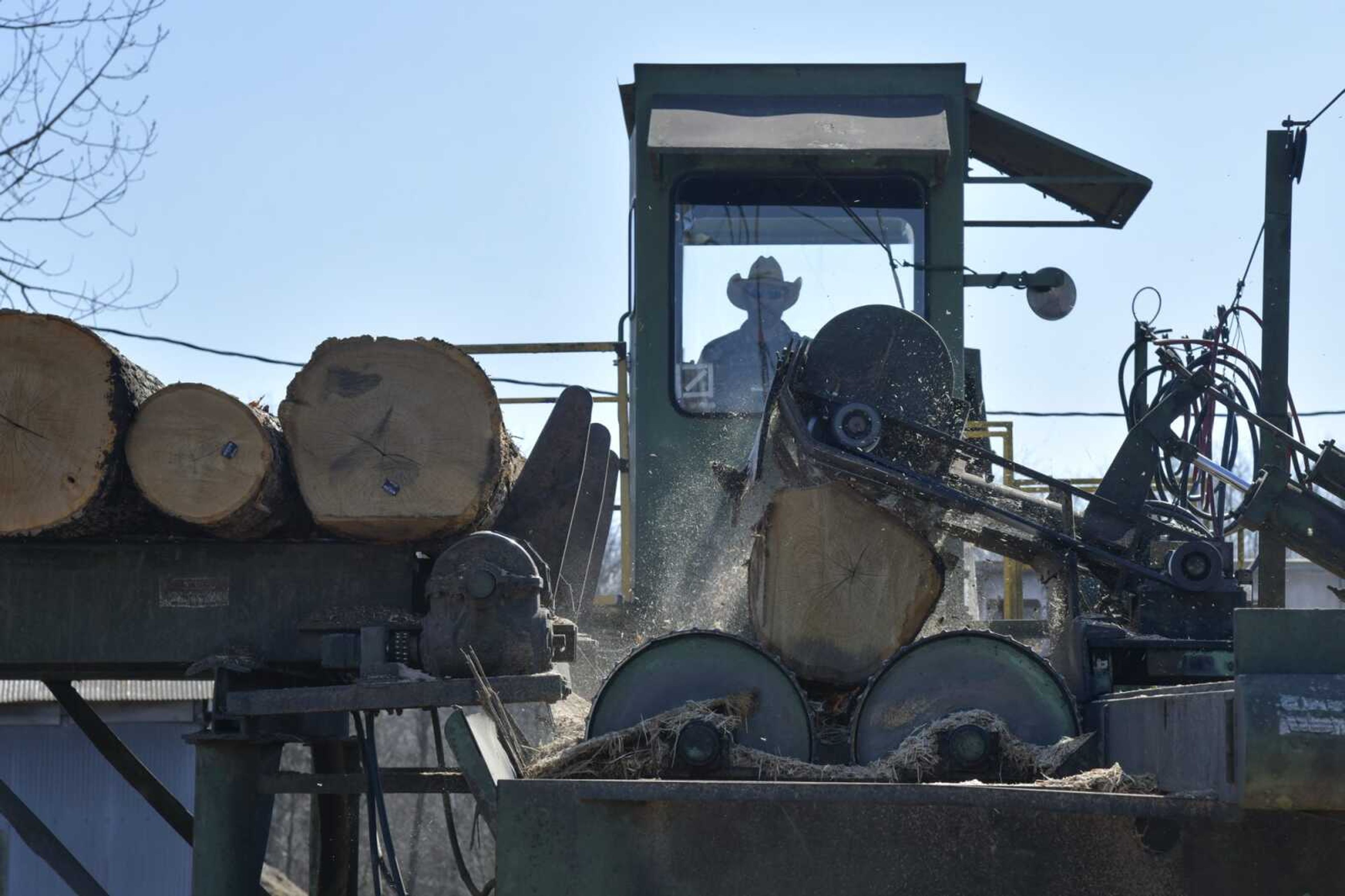
The history
Perryville Stave Co. was started in 1946 by the Freeman brothers -- R.B. Freeman (Steve's great-grandfather) and R.B.'s brothers, L.R. and Hayden -- with the Missouri Timber Co. They had several additional stave mill operations in Missouri, Indiana and Kentucky.
The second generation, represented by Steve's grandfather, J.E. Bailey, ran the operation until 1957 when J.E. was sent to a mill in Kentucky, leaving the third generation, Steve's father, Bill, to oversee the Perryville operation.
In 1961, the Freeman brothers moved the mill machinery into storage and dissolved their partnership. The mill managers were given the opportunity to buy the mill machinery and restart operations, which Bill did. Buying the mill with borrowed money, Bill "got the thing off the ground," Steve said. Bill renamed the Perryville Mill as Perryville Stave Co. in 1963.
"My mother was working at the Bank of Perryville at the time, so they had a little bit of income," Steve Bailey said. "For a long time, Dad didn't draw any money out of the business; they lived on what mom made. Everything he made, he put back into the business. Over time, it prospered."
Bill worked daily in the business until right before his 90th birthday. As fate would have it, his retirement party and funeral notice were scheduled to be on the same day in January 2021.
Ed Schulz, international sales manager with Barrel Associates International in Fresno, California, remembered Bill as "a grand individual. A courtly and principled gentleman, he was still running the mill every day, at nearly 90, on a rare mix of love and stubborn devotion -- he was a force to be reckoned with."
Sons Steve, president, and Mike, general manager, are stepping up to fill Bill's shoes, which Schulz said is "a daunting prospect." Luckily, they have been by his side in the mill every day for decades with a committed group of 27 employees that are "like family."
Schulz has known the Baileys for 23 years; Perryville Stave was one of the suppliers for the small barrel production company he worked for.
"They were very down home, humble, wonderful people ... sort of unconsciously good at what they did," Schulz said.
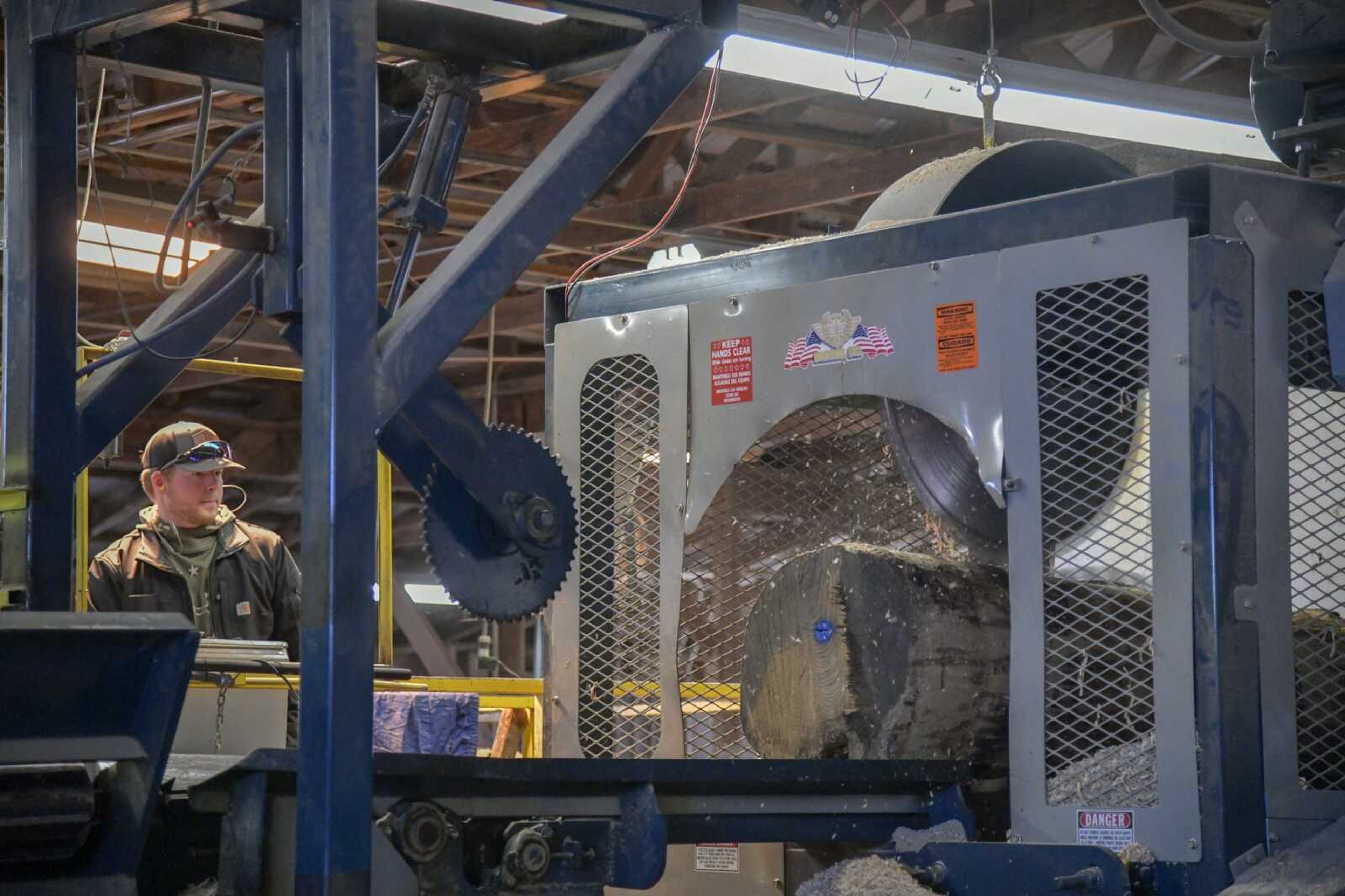
From whiskey to wine
A stave is a narrow length of wood with a slightly beveled edge to form the sides of barrels, and much of the success of Perryville Stave comes from the quality of wood they have access to.
"The timber (white oak) we have in Missouri is particularly good for the flavoring of wine and spirits," Steve said.
According to Grape Collective, the most common wood used for wine barrels is French oak, a wide-grained species found in Europe, which imparts subtle flavors, making it ideal for lighter wines such as pinot noir and chardonnay. For a new French oak barrel, a winemaker can expect to pay between $850 and $3,600.
At a lower price of around $500 per barrel, American oak grows from Missouri to the East Coast and straight through bourbon country. American oak helps create tannin-rich, bold wines, and is popular with wines produced in Spain, Australia and the Americas.
When Perryville Stave began in 1946 and up until the early 1980s, the American oak barrel staves produced were used entirely for whiskey barrels, until they were approached about making staves for wine barrels by Jean Jacque Nadalie, owner of Tonnellerie Francais, a business in France making barrels for the French wine market. They set up a cooperage (a business that makes barrels out of staves) in Calistoga, California, and were interested in using American oak for their wine barrels as a cost-saving option.
In order to accommodate the concept of making staves for the wine industry, Perryville Stave had to make some adjustments.
Steve explained that for the whiskey market, as long as the wood is dry enough or loses enough weight to get a load on a truck, it can be delivered to be made into whiskey barrels. Wine barrels are a little different -- the wood has to be aged longer and the long-term air-drying changes chemicals in the wood.
"It took a little bit of getting used to the way the wine people wanted things done," Steve said. "But dad agreed to do it, and we started doing business with Tonnellerie in 1980. They were pretty groundbreaking in using American oak. And they're successful, so this thing grew pretty fast."
Currently, Steve estimated 80% of their staves are used for wine, with whiskey staves having a secondary role.
Schulz added, "These hardworking, unsung heroes of the wine barrel business have spread their delightful flavors of prime Ozark white oak throughout the California and Washington wine industries, from the wine country of Napa Valley and Sonoma in California and Washington in the U.S. to Chile, South Africa, Argentina and Canada. Everywhere great wine is made in the west, great Perryville stave barrels are delivered by Barrel Associates from a cooperage in Fresno, California."
Over the last 20 years, Perryville Stave Co. has provided stave wood for more than 150,000 barrels for Barrel Associates alone.
"Every barrel is 60 gallons of wine that people have on their tables and are enjoying," Schulz said. "It's an international following."
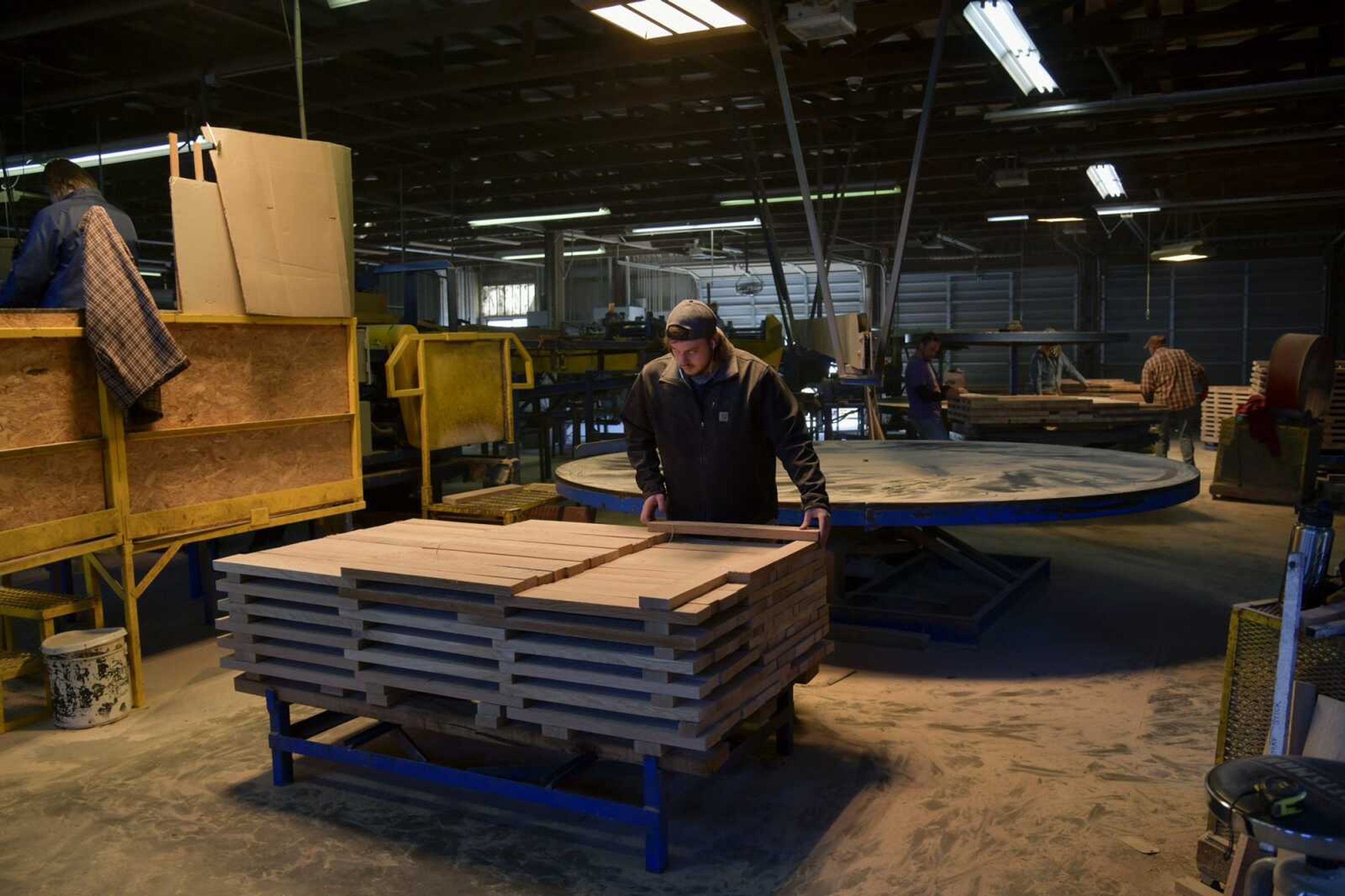
Stave making
The wood used at the Perryville Stave Co. typically comes from within about a 75-mile sourcing radius.
"Believe it or not, I don't get a lot out of Perry County or Cape County," Steve said. "Those trees tend to be bigger than what we can process. We have to have logs within a fairly narrow size category."
Schulz said a lot goes into making staves.
"So much hard work goes on dealing with raw materials, to get people into the forest in the winter to drag a log out over snow," Schulz said. "It's grimy, gritty, dangerous, slippery work, and doesn't pay well -- they find a reward in just doing a good, honest, hard-day's work."
It takes five semi-truck loads of logs to make one semi-truck load of staves.
Throughout the years, Bill Bailey had some innovations that are still used across the industry. For example, in the 1960s, the staves were stacked on wagons, taken to the drying yard and put in stacks to dry. When dry, they were loaded onto trucks, then off to the railroad and loaded in boxcars -- all of the many steps were done by hand.
"My dad decided that was ridiculous, so he figured out a way to put these things in self-contained packages on a forklift where they'd only have to be handled one time -- a huge, huge labor-saving device," Steve Bailey said. "It seems incredible that with all the big companies, nobody else has thought about that."
Steve remembered Bill telling one of their customers about the new way of doing things.
"'I've loaded my last boxcar,'" Steve recalled his father saying. "The man replied, 'You know you can't do that.' Dad said, 'I bought a forklift and if you're going to buy for me, you better buy one, too, because that's how they're coming to you.'"
Schulz described Bill as "the kind of guy who would be the first one to turn on the lights and the last one to leave. This guy was unstoppable, determined, dogged."
After barrel companies such as Tonnellerie Francais and Barrel Associates purchase the staves from Perryville Stave Co., the wood sits two or three years for seasoning in the Missouri weather through freeze and thaw cycles. Once the wood leaves Perryville, the staves are shaped into barrels at a cooperage, then either charred for whiskey or toasted for wine.
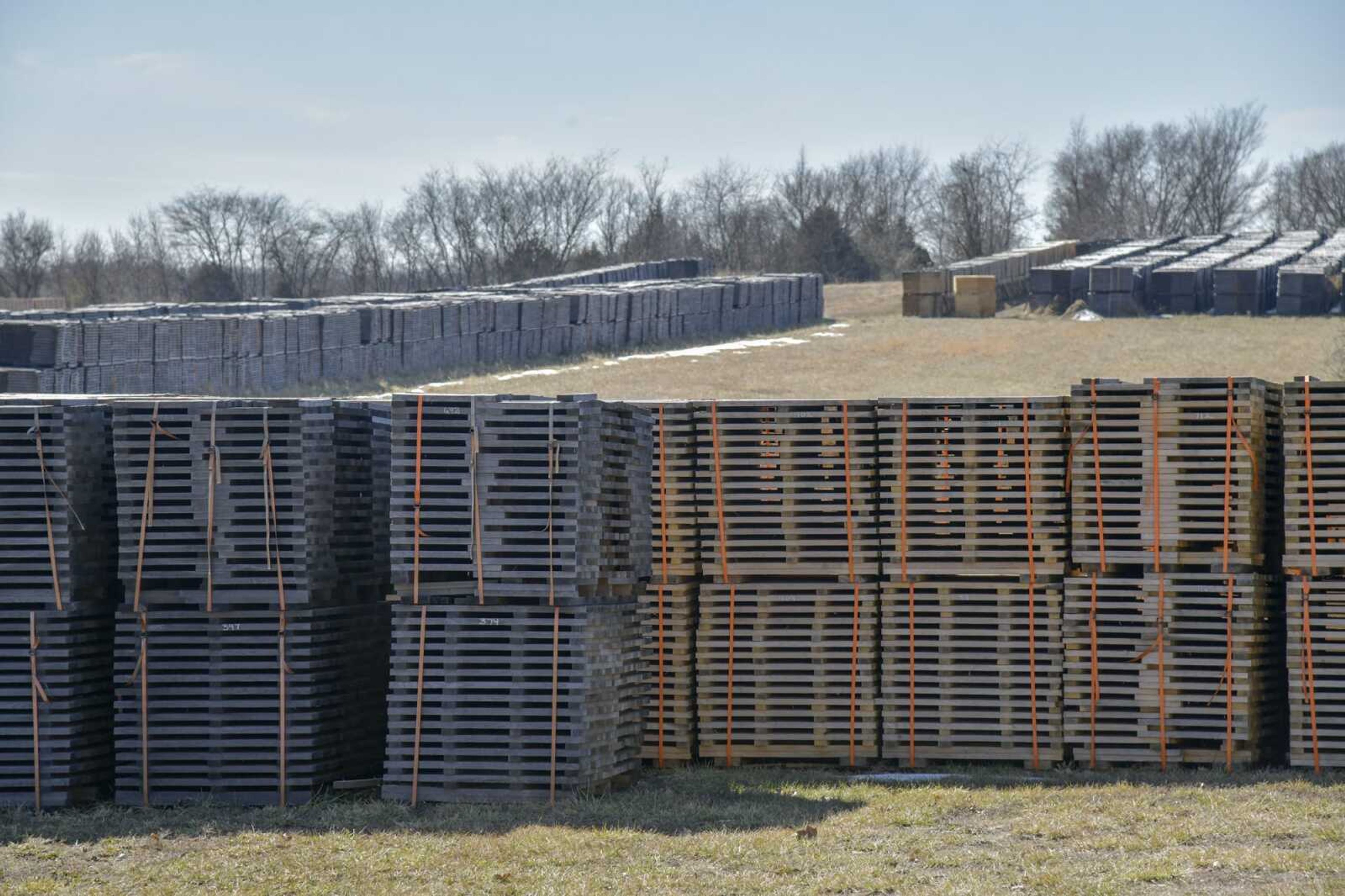
Oak alternatives
About 10 years ago, Perryville Stave Co. began using the leftover wood not suitable for making barrels into what the industry refers to as "oak alternative" products.
Perryville Stave Co. makes several varieties of these alternative methods of flavoring wine, including chips added at various stages of the winemaking process, straight into the wine tank or dipped into the tank using infusion bags, like "large tea bags."
"It's a cheaper alternative to flavoring the wine," Steve said. "It's been a pretty good business."
They also create and toast American oak planks out of otherwise unusable stave wood, which are drilled with holes made to slide onto rods placed directly in vats of wine to flavor them.
Getting the right toast on the boards took some experimentation, even using Steve and Mike's mother's oven (removed for remodeling) at one point. However, they now have two large walk-in ovens in a building that smells of vanilla as the toasting process releases the vanillin chemical in the oak. With the large ovens, they are able to roll in large racks of planks to toast the boards for customers before loading and shipping them.
Around the world
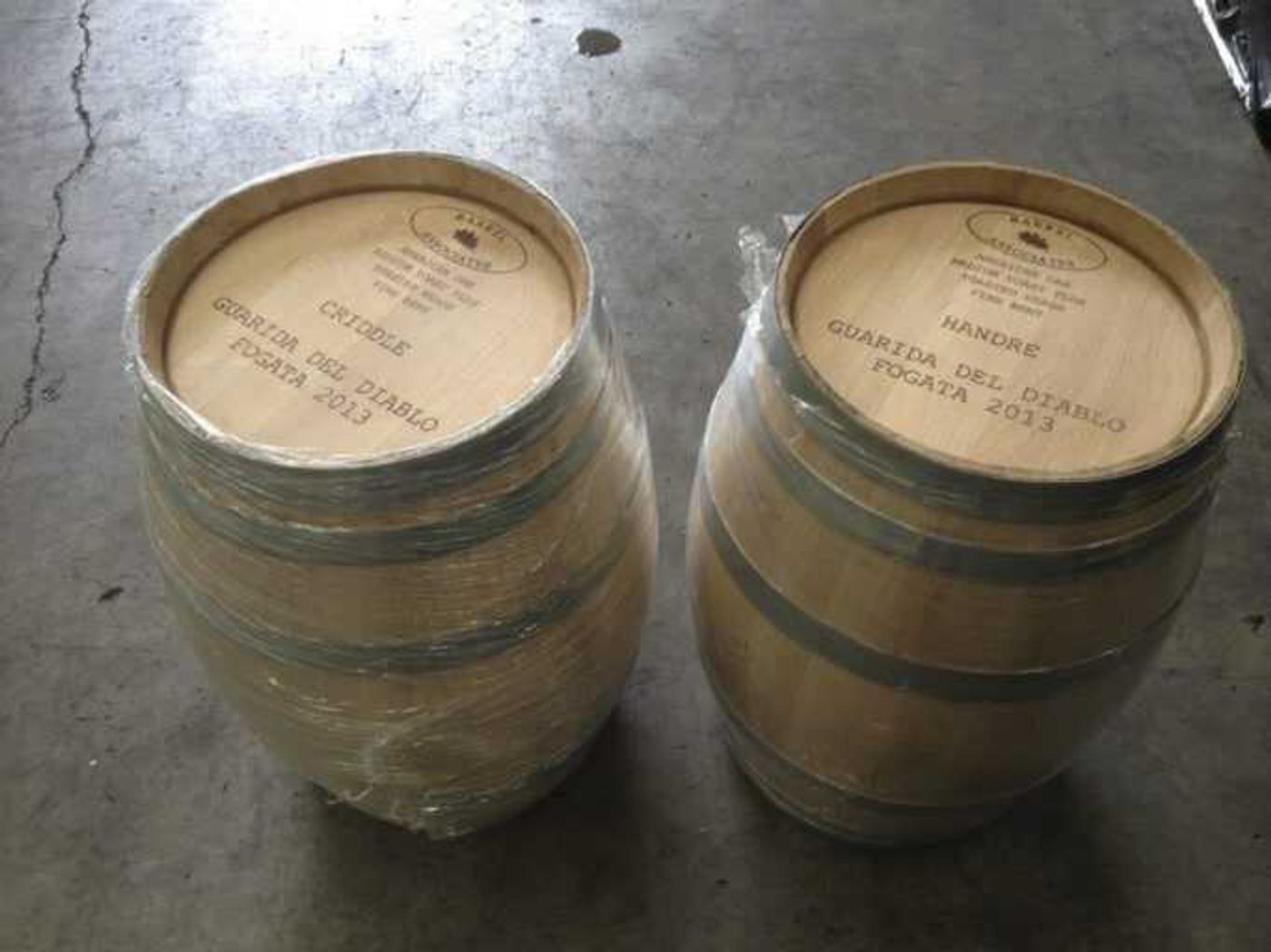
Currently, Perryville Stave Co. has direct business in the United States, Spain, France and Chile. The barrels made by companies such as Barrel Associate and Tonnellerie Francais isn't always apparent to Steve.
"I don't know where all they end up," he said. "At one time, we did a lot of business in Japan."
When running at full production, and "everything is falling into place, we don't have a lot of breakdowns, we get adequate supply of timber, we'll cut enough wood in here for about 20,000 barrels."
And as for the oak alternative products, "We'll process enough chips for a whole lot more than that. If you break it down into 50-gallon units ... we'll do 300- to 350,000 pounds a year of chips. So, between the two products, the equivalent of 120,000 barrels worth of wine a year." There are 250 bottles of wine in a barrel.
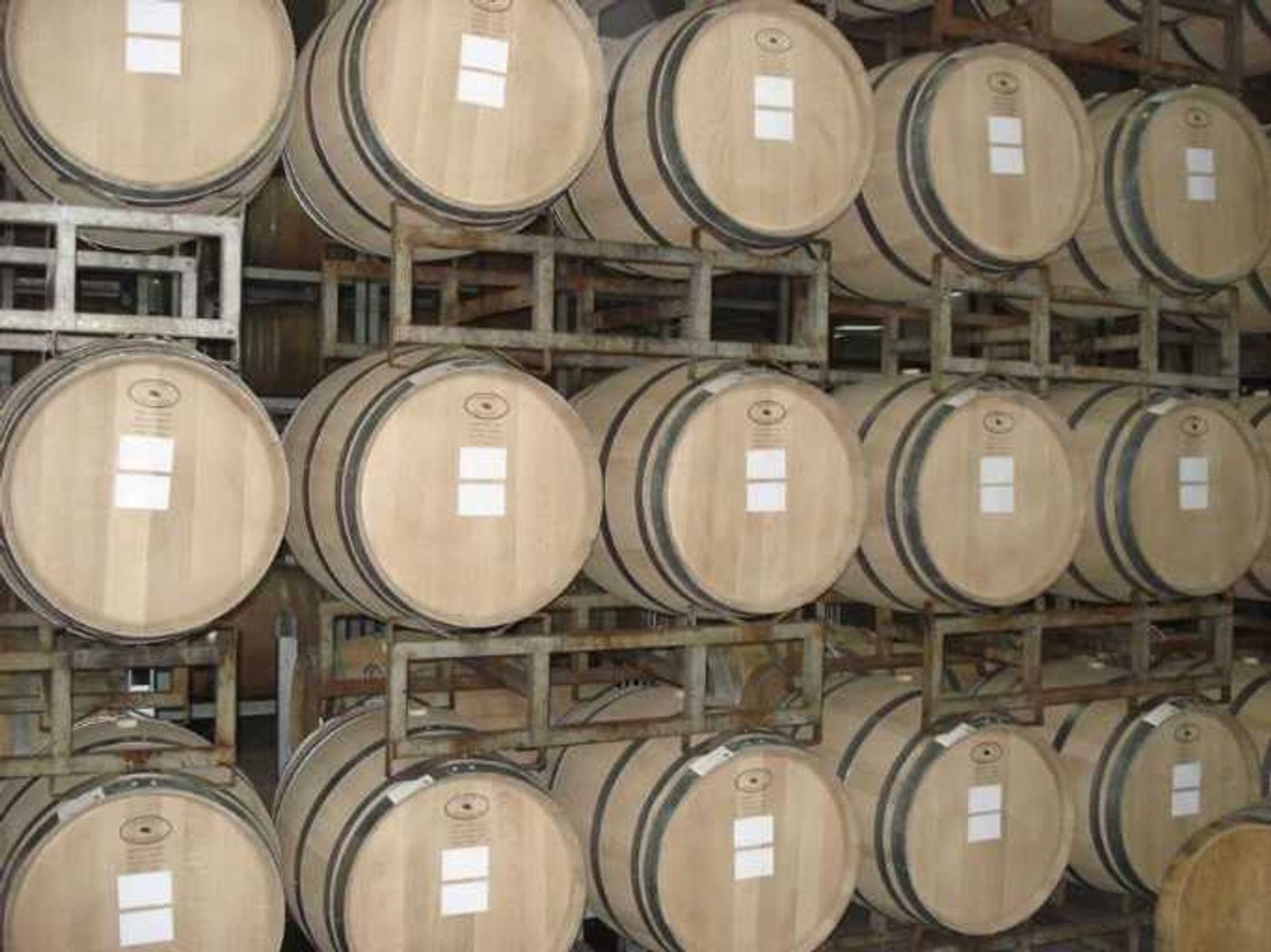
With the passing of Bill, Schulz said "What Bill Bailey and his family have achieved through grit and grin and now considerable grief in Perryville" needed to be recognized.
With barrels made of Perryville Stave Co.'s wood all over the world, it's likely you've tasted a drop of wine or whiskey aged in American oak from Southeast Missouri.
Connect with the Southeast Missourian Newsroom:
For corrections to this story or other insights for the editor, click here. To submit a letter to the editor, click here. To learn about the Southeast Missourian’s AI Policy, click here.

